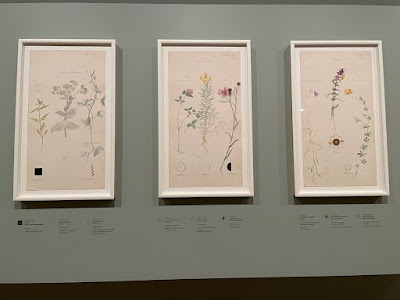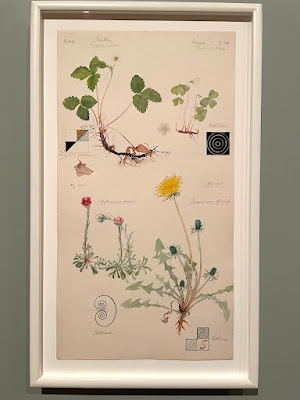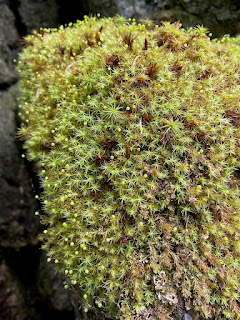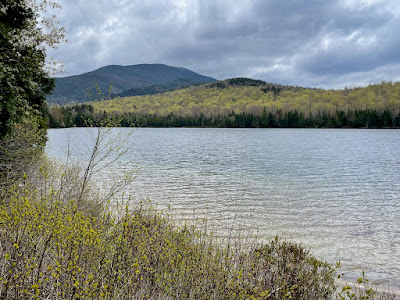The only thing more entrancing than the extraordinary delicacy of Hilma af Klint's "Nature Studies" (1919-20), on view for what may be the very first time at MoMA, is the way each is accompanied by a geometrical symbol designed to communicate "what stands behind the flower," a set of virtues, vices and tendencies verbalized in a notebook.
The woodland strawberry at upper left on the sheet below, for instance, is described as Liberator / Longing to create balance within the blood system by expelling either white or red blood cells. The European wood sorrel at upper right: fragility - submissiveness / shyness - humility / fear - respect / self-loathing - obedience. The common dandelion, at lower right: Beginning / Sluggish persistence / Jealousy / Tenderness. And catsfoot, at lower left: Peace and harmony.
Stacked or divided squares, diagonals, circles, curlicues, eddies, spots and seeds inside and beyond the squares in colors and gilt... I have no idea what's going on. It doesn't help when I read af Klint's
words, "When we turn our gaze toward the plant kingdom, it gives us information
about the composition of our own being." Is this visionary a little mad?
But it's
impossible not also to feel that these plants and flowers were revealing something to her, that kin's self-understanding might be more like a geometrical symbol than a pretty watercolor.

And of course each will be different from others, even as symbols, words and organic material resonate, calibrate and swirl within each of these registers as well as among them. To learn the languages one would need to open oneself to all at once, example by example.
.jpeg) Perhaps I could start by apprenticing myself to the Yellow toadflax
(center of the image above and at top), whose symbol is below, and whose textual translation reads:
Perhaps I could start by apprenticing myself to the Yellow toadflax
(center of the image above and at top), whose symbol is below, and whose textual translation reads:
Determination
Insight into the direction of the road
(beginning knowledge)
[Btw, the yellow iris above, which alone gets a whole sheet for itself and a cosmogony of symbols, is described: Spiritual reservation / Belief in the creation act / Reverence for the power of thought / Longing for holiness based on the Reverence for the strength of feeling]







.jpeg)



















.jpeg)






















